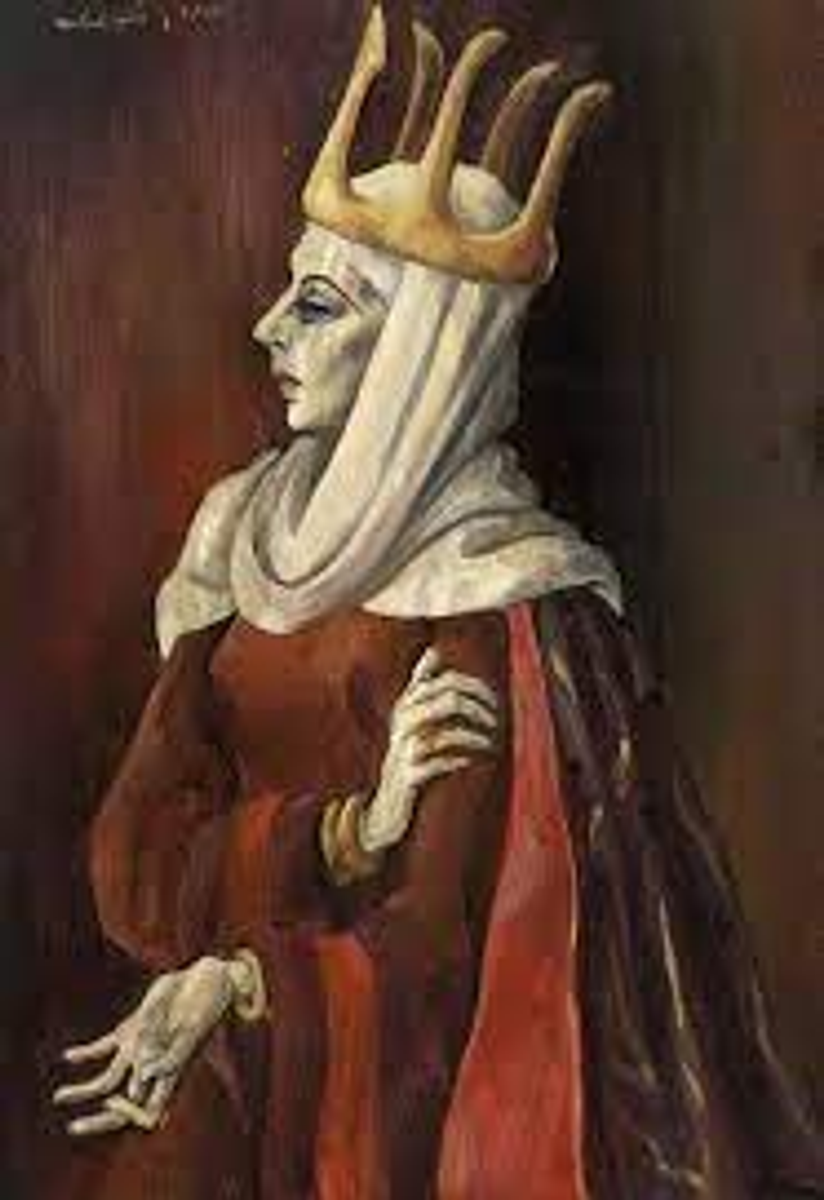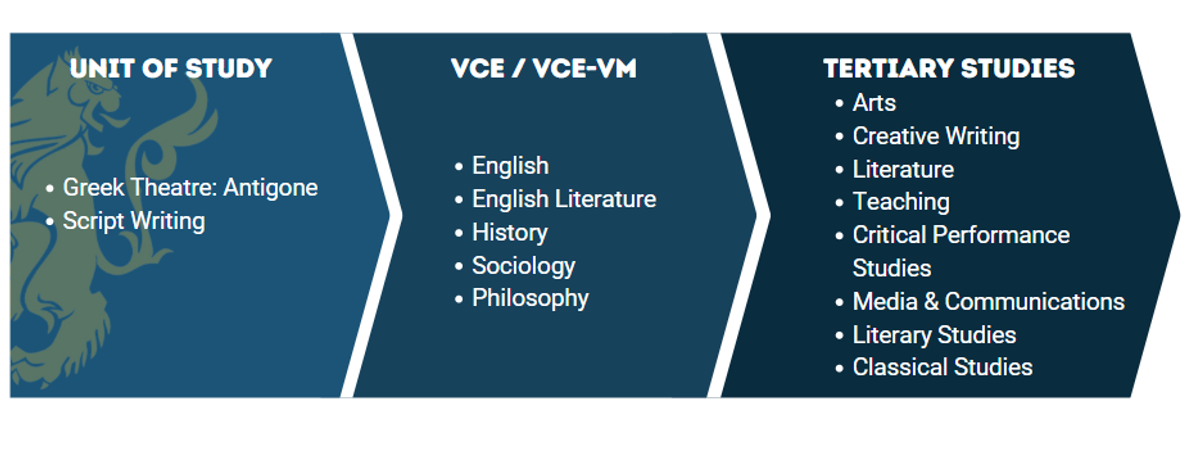English - Ancient Greek Theatre

Unit of Study: Ancient Greek Theatre
Brief Description: Vengeance, pride and treachery can have disastrous consequences, never mind matricide, patricide and defiance. Sometimes it almost seems like fate is in charge and fate can be very ironic. All of this is quite familiar from Greek tragedy. This unit introduces students to Greek tragedy as a genre. Students will read ‘Antigone’ and become familiar with both the form and content of Greek tragedies. Various aspects of the genre will be discussed, including interactions of mortals and immortals in Greek tragedy, fate and responsibility, gender issues, Greek self-identity and representation of the foreign.
The battle between man and gods is what Greek theatre will explore. These plays focus on a limited number of actors and a chorus who reveal a tragedy or comedy based on the works of an ancient playwright. Greek theatre typically has as its theme stories from Greek mythology or comedic situations where real ancient Greek politicians and other notable citizens are made fun of.
In Term 1, Students will study a timeless Greek play and focus on the literary elements, plot, characters, and the message it provides to the modern world.
Scaffolding Learning
At the conclusion of this unit of study students will have:
An understanding of key knowledge
- Students will gain a developed understanding of what constitutes Greek Tragedy.
- Students will gain the ability to challenge ideas and concepts that arise in complex texts.
- Students will gain the ability/tools/language needed to explore the common elements found in Greek theatre (structure, language, sound and form).
- Students will analyse the structure and conventions of script writing.
- Students will experiment with writing for a target audience.
- Students will develop an understanding of the structure, language and stylistic choices that combine to form a script.
Attained these key skills
- Students will be able to analyse structure, language and ideas found in Greek Tragedy.
- Students will have experimented with writing and analysing figurative language.
- Students will plan and write analytical responses to ideas found in the text.
- Students will explore the notion of fate and freewill and challenge these social constructs.
- Students will plan and write a script.
- Students will adapt the language features, stage directions and sound effects to achieve stylistic effect.
Demonstrated the Victorian curriculum standards and capabilities
- Reading & Viewing
- Language for interaction: (VCELA457)
- Text structure and organisation: (VCELA458)
- Expressing and developing ideas: (VCELA459)
- Literature and context: (VCELT460)
- Responding to literature: (VCELT461), (VCELT461), (VCELT462)
- Examining literature: (VCELT463), (VCELT464), (VCELT465)
- Texts in context: (VCELY466)
- Interpreting, analysing, evaluating: (VCELY467), (VCELY469)
- Writing
- Text structure and organisation: (VCELA470), (VCELA471)
- Expressing and Developing Ideas: (VCELA473), (VCELA474)
- Creating literature: (VCELT476), (VCELT477), (VCELT478)
- Creating texts: (VCELY479), (VCELY480), (VCELY481)
- Speaking & Listening
- Interacting with others: (VCELY485), (VCELY486)
Assessment Tasks
Students will be required to complete the following assessment tasks:
- An analytical essay in response to a theme or ideas explored in ‘Antigone’
- The development of a script
- Director’s notes/edits and annotations
Additional learning opportunities
- Potential Incursion for performance and analysis
Resources
- Families will need to purchase ‘Antigone’ by Sophocles
- Workbook, pens and highlighters
- A sense of vengeance (as directed by the Gods)
Pathways
This unit of study could provide students with the following pathway.

